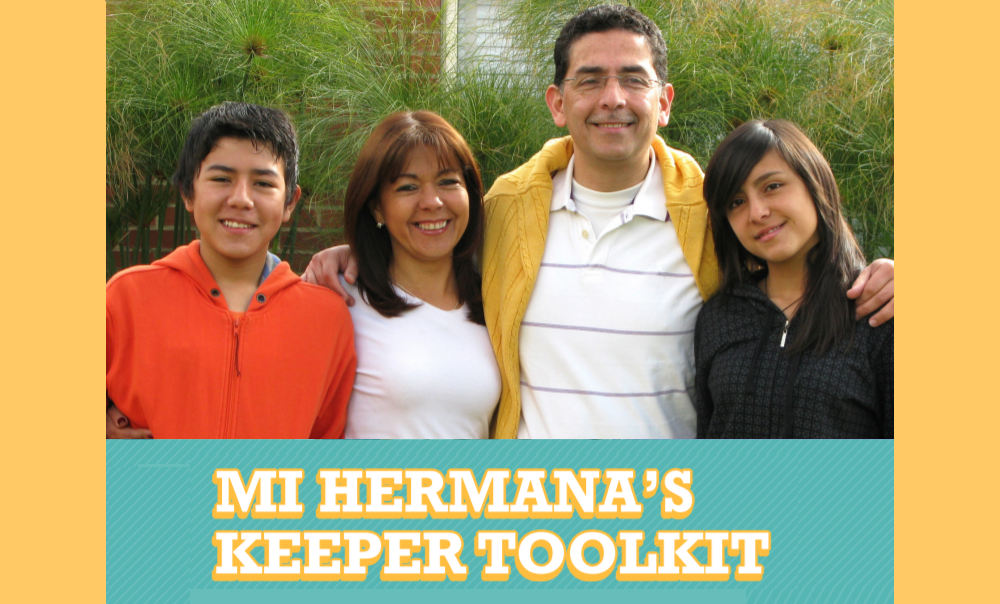
Johanna Creswell Báez, PhD, LCSW
In our Family Keys program, a prevention program that served close to 40 percent Latina youth in 2016, there is a strong sense of familia. Familia, the sentiment of treating others like family, runs through the core of Southwest Key Programs, a Hispanic-run organization with more than 90 percent Latino staff, and is a key value in our agency.
Our natural tendency to uphold Latino values in programming got us thinking … how do organizations intentionally serve and support the unique needs of Latina youth? Meanwhile, we learned about a National Girls Initiative Innovation Award that could help us explore this more deeply.
For the award, we wanted to hear directly from the voices of our Latina youth and their families. How are we making an impact in their lives (and what we can do better)? And, how can other organizations learn from our work?
We wanted to get at the following general questions that many agencies often ask internally:
- What makes our programs unique?
- What really helps our specific client population?
- What are the key ingredients in our programming?
- How can we share this with other organizations?
Southwest Key is a nonprofit organization that has positively affected the lives of high-risk children and their families for more than 30 years. The mission of Southwest Key Programs is “opening doors to opportunity so individuals can achieve their dreams.” Southwest Key provides three distinct areas of programming: youth justice, charter schools and immigrant children’s shelters. With more than 5,000 employees across seven states and 87 different programs serving primarily Latinos, Southwest Key helps empower young people, their families and their communities with the skills, knowledge and tools to succeed.
At Southwest Key, one of our many areas of focus is supporting girls of color, specifically Latina youth who have been or are at risk of being involved with the juvenile justice system. We know from change leaders, such as Monique Morris, that our approach needs to be multifaceted, dynamic and holistic. It was in this spirit that we developed the Mi Hermana’s Keeper toolkit from focus groups and interviews with Latina youth, their caregivers and key stakeholders (social workers, educators, case managers, probation offices and nonprofit leaders in community-based programs) with our Family Keys Programs in Texas.
Toolkit: Mi Hermana’s Keeper
The toolkit contains a literature review on what best supports Latina youth in juvenile justice prevention programs, nine program- and system-level recommendations for working with Latina youth in prevention programs, an action checklist for organizations to implement these recommendations, targeted resources for each recommendation and feedback from Latina youth, caregivers and stakeholders. Using an empowerment framework, each recommendation and action step was developed directly from the themes discussed in the focus groups and interviews.
Our research outlined the following nine key program-, practice- and systems-level recommendations for supporting Latina youth:
Program-level recommendations:
- Provide services that are respectful and reflective of shared and individual Latino cultural heritage
- Provide services that value respeto (respect) and teach respectful practices
- Provide services that utilize a relational approach
- Provide case management services for the entire family
- Support cross-generational services to instill values
- Develop caregiver-specific services.
System-level recommendations:
- Build culturally responsive school practices
- Support effective systems advocacy
- Promote the dismantling of system racism and bias.
For service providers and administrators of youth prevention programs, many of these recommendations might ring true in your programs, too. These recommendations were based specifically on what Latina youth and caregivers in our Texas prevention programs said they want and value in our programming.
They want a program that values their culture, teaches respect, is relational and includes the entire family in their services through cross-generational activities and caregiver-specific support. The Latina youth and caregivers also recommended that programs not only focus on direct services, but also support systems-level changes that were affecting their daily lives, such as fighting to undo systemic racism. For a deeper dive into these recommendations, the toolkit outlines the recommendations connected to action steps for service providers and online resources for other programs to use.
Latino values: Focus on respeto key
We found that a key ingredient to effective programming for our Latina youth was the emphasis on Latino values, and these values were at the core of our work. The Latinas and caregivers continually said that our programming had a focus on respeto, was relational and was open to the entire family. They also saw our staff members as social change agents who would advocate for their needs on a systems level — in their schools and the community. As one caregiver said, “I really appreciate the way they treat my daughter and the support that they give us. They give support to my daughter and I feel that they give me support also because they say if I need anything, talk to us. And they treat my daughter well.”
Overall, we found that this type of research is invaluable — empowering your client’s voice to provide feedback and understanding the unique aspects of your services. We want others to learn from this research to support gender-specific and culturally competent juvenile justice prevention programming, especially for Latina youth.
We also acknowledge the changing needs of Latina youth and the challenges that come with serving an increasingly diverse Latina population and see these recommendations as dynamic, in which this toolkit must be adapted to different individuals, programs and systems.
Organizations interested in partnering with us to improve service and support for Latina youth can start using the toolkit today. We are also available for technical assistance training for other organizations to do this important, yet too often neglected, work of supporting Latina youth in juvenile justice prevention programs.
Johanna Creswell Báez, Ph.D., LCSW, is the director of research and evaluation at Southwest Key Programs. She is also an adjunct assistant professor at Columbia University School of Social Work and the University of Texas at Austin School of Social Work.



























